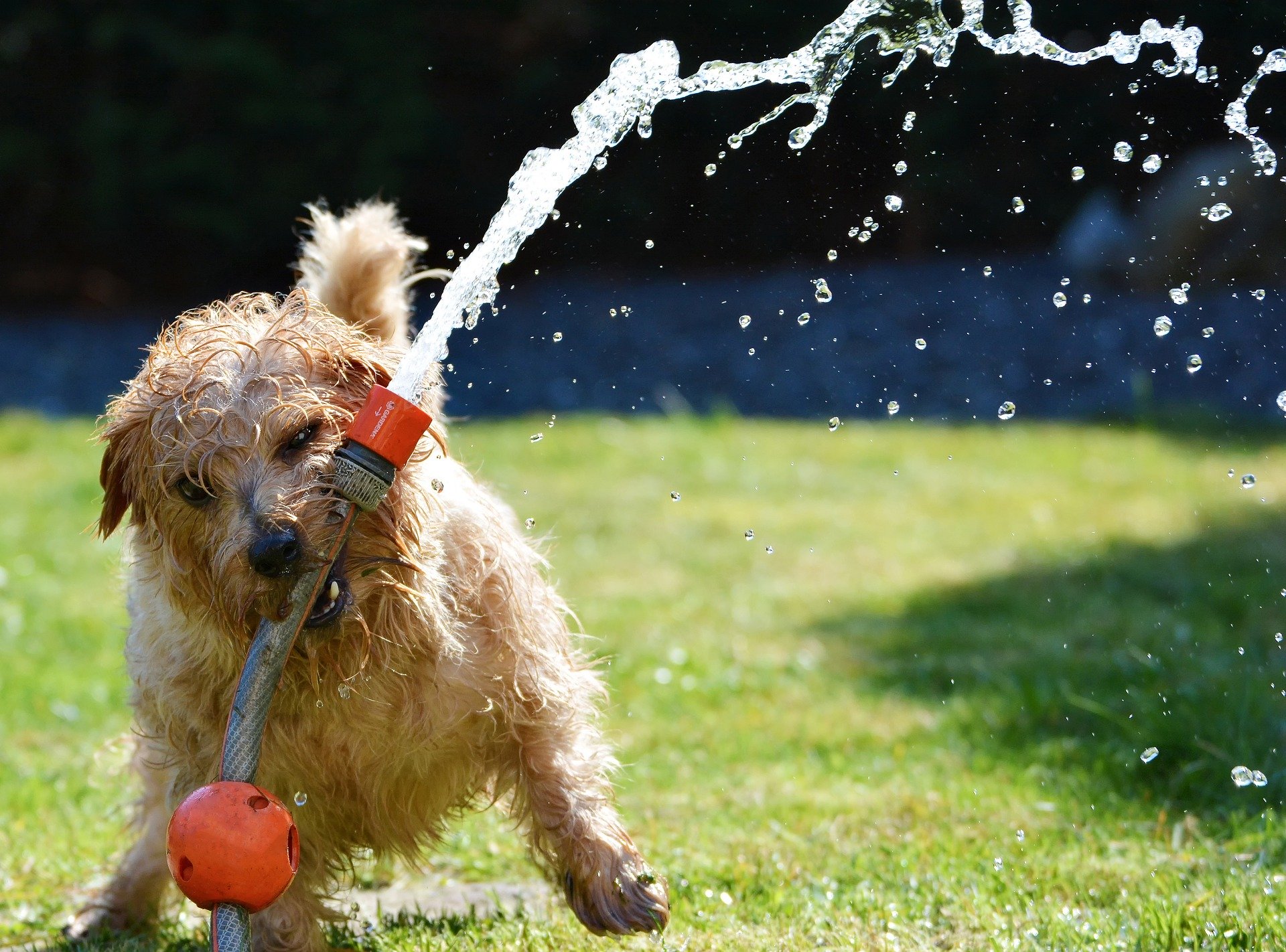With the holiday season here, we are all looking for the perfect gift for the most important people – and dogs – in our lives. Dog toys are a great choice for your furry family member. Toys are essential for dogs for a variety of reasons that contribute to their mental, physical, and emotional well-being. Providing toys for dogs is not just about entertainment, but it also plays a crucial role in their development, behavior, and overall happiness.

- Mental Stimulation: One of the most important reasons toys are vital for dogs is that they provide mental stimulation. Dogs are intelligent creatures, and without activities to engage their minds, they can quickly become bored. Boredom can lead to unwanted behaviors such as chewing furniture, digging, or excessive barking. Toys that challenge a dog mentally, such as puzzle toys or treat-dispensing toys, keep their minds sharp and encourage problem-solving. Mental stimulation through toys helps keep dogs cognitively engaged, which is especially important for breeds that are known for their intelligence and high energy levels.
- Physical Exercise: Toys are also an excellent way to keep a dog physically active. Playtime with toys, whether it’s fetching a ball, tug-of-war, or chasing a squeaky toy, encourages exercise and promotes physical health. Regular exercise is essential for maintaining a dog’s weight, improving muscle tone, and promoting overall fitness. For high-energy dogs, toys provide an outlet for their natural instincts to run, chase, and explore. Even indoor dogs can benefit from engaging with toys, as they help burn off excess energy and prevent weight gain due to inactivity.
- Teething Relief: Puppies, especially when they are teething, experience discomfort as their baby teeth are replaced by adult ones. Providing chew toys can help soothe this discomfort and prevent them from chewing on household items such as shoes or furniture. Chew toys designed specifically for teething puppies are made from soft yet durable materials that help massage their gums and provide relief. These toys also help puppies develop good chewing habits, which will carry over into adulthood.
- Behavioral Benefits: Toys help shape a dog’s behavior in a positive way. They provide an outlet for natural instincts like chewing and hunting, which might otherwise be directed toward inappropriate or destructive behaviors. For example, dogs who have access to toys that encourage chewing or retrieving are less likely to chew on shoes or furniture. Interactive toys, such as treat puzzles or fetch toys, can also teach dogs to focus, obey commands, and interact with their owners in a structured way. Additionally, having toys available can reduce feelings of anxiety and frustration, particularly in dogs that suffer from separation anxiety or are left alone for extended periods.
- Bonding and Socialization: Toys play a significant role in strengthening the bond between dogs and their owners. Engaging in play together is a great way for dogs and humans to connect. Playing with a dog using toys can be an opportunity to reinforce training, build trust, and foster a sense of companionship. Whether it’s a game of tug-of-war or fetch, these activities encourage positive interactions and provide dogs with attention, affection, and companionship. In multi-dog households, toys can also facilitate socialization between dogs by encouraging cooperative play and reducing the chances of conflict.
- Reducing Anxiety and Stress: Dogs, especially those left alone during the day or those who experience stressful situations, can benefit from toys that offer comfort and relaxation. Toys can act as a coping mechanism for dogs dealing with separation anxiety, noise phobia, or other stress-related conditions. Chew toys or soft, cuddly plush toys can provide comfort, offering a familiar scent or texture to soothe the dog. Additionally, certain toys, such as calming puzzle toys or those that dispense treats slowly, can distract dogs from anxiety-inducing situations and help them feel more secure in their environment.
- Instinctual Play: Dogs have natural instincts related to hunting, chasing, and retrieving. Toys that simulate these activities—such as balls, ropes, or frisbees—allow dogs to engage in these behaviors in a safe, controlled manner. Interactive toys that mimic prey, such as those that move erratically or make noise, satisfy a dog’s hunting instinct. This type of play is not only fun for dogs but also provides an outlet for their predatory behaviors, allowing them to release energy and satisfy their natural instincts without causing harm or damage.
- Encouraging Independent Play: While social interaction with owners is important, toys can also encourage independent play. Not all dogs have the same energy or need for attention, and some may prefer to play alone. Toys give dogs the ability to entertain themselves, which is particularly helpful when their owners are busy or when they need time alone. Providing a variety of toys—ranging from chew toys to interactive puzzle toys—ensures that dogs can find something that suits their individual preferences and provides entertainment without constant human interaction.
Toys are essential for dogs in a variety of ways, offering benefits that contribute to their mental, physical, and emotional well-being. Providing an assortment of toys is a part of responsible pet ownership, ensuring that dogs lead fulfilling and enriched lives.
Gulf Coast K9 Dog Training is a professional dog training and obedience school located in Bradenton, Fl.




